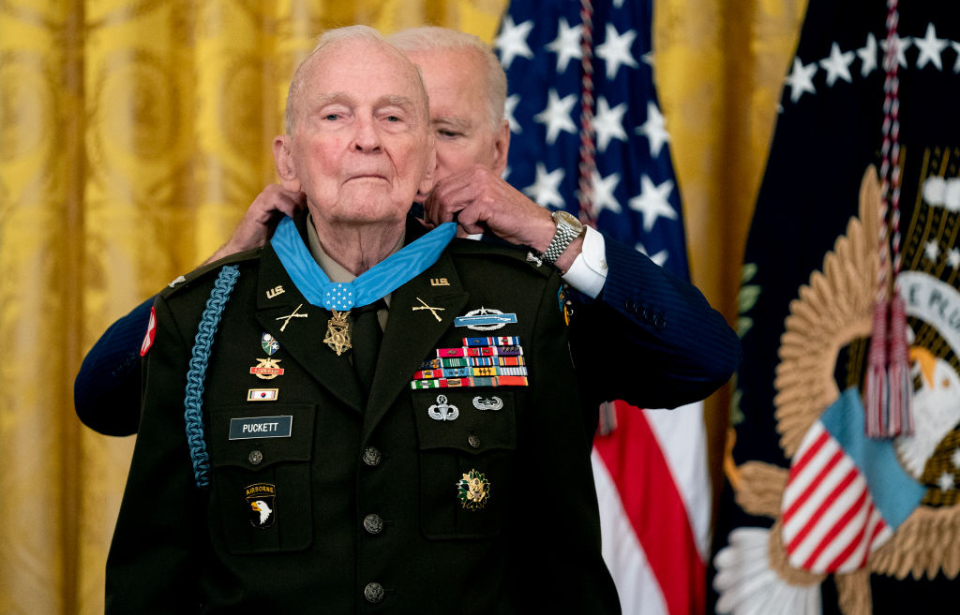The Medal of Honor is bestowed upon service members who display immense bravery and gallantry while serving in the military. Some are presented it shortly after their heroics, while others are given it decades later or even posthumously. One individual to receive it later than most was retired US Army Ranger Col. Ralph Puckett, who showed immense bravery in the face of an enemy assault during the Korean War.
Ralph Puckett was destined for military service
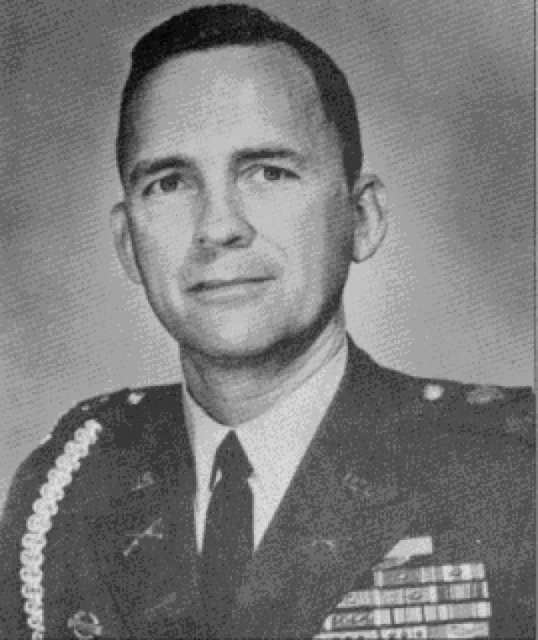
Ralph Puckett was born on December 8, 1926, in Tifton, Georgia. Growing up, he was destined to serve his country, attending Baylor School in Tennessee, which, at the time, was a military academy. He’d initially planned to attend Georgia Tech, but, in 1943, opted instead to enlist in the Reserves of the US Army Air Forces (USAAF).
Puckett’s initial foray into the USAAF saw him take pre-aviation cadet training at Georgia Tech, but this later disbanded, leaving the aspiring aviator without flight training. Without any options, he was discharged and given an appointment to the US Military Academy West Point, from which he graduated in 1949.
Following a commission as an infantry second lieutenant, Puckett was deployed to Japan, where he immediately volunteered to join the Eighth Army Ranger Company, despite being told there were no more lieutenant positions available. This impressed Lt. Col. John H. McGee so much that he gave the young soldier a company commander’s position.
Battle of the Ch’ongch’on River
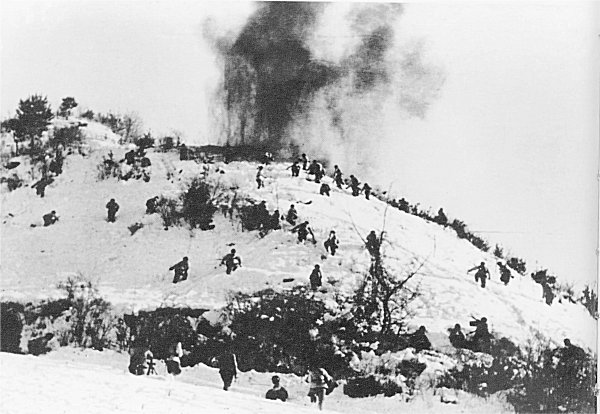
Shortly after joining the Eighth Army Ranger Company, Ralph Puckett and his comrades were sent to Korea. On November 25, 1950, the troops found themselves fighting the Battle of the Ch’ongch’on River, with Puckett, still a first lieutenant, his 51-man company and nine South Korean soldiers capturing Hill 205 – a strategic site overlooking the waterway below.
The fight to secure the hill was anything but easy, with Puckett exposing himself to enemy fire on several occasions. The first came when he purposely did so to allow a platoon to locate Chinese positions on Hill 205 and capture it. After this, he helped coordinated a defense of the area from a Chinese counterattack, which kicked off at 10:00 PM that night and lasted hours.
Defending Hill 205
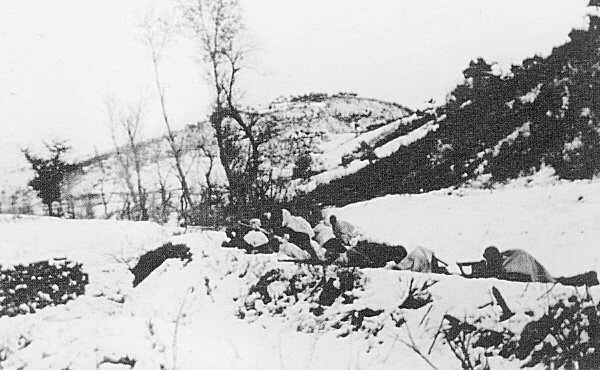
Despite being outnumbered 10-to-1, the Rangers continued to hold their ground, at one point engaging in hand-to-hand combat. With a lack of outside support available, Ralph Puckett’s men became overrun, but that didn’t stop the commander from keeping the fight going.
On several occasions, Puckett ran from his foxhole to expose himself to enemy fire, in the hopes of revealing the Chinese forces’ positions. “We were getting more and more pressure and had more and more people wounded,” he later recalled.
As the counterattack raged on, Puckett became incapacitated when two mortars landed on his position. While he ordered his men to leave him, two – Pfc. Billy Walls and David Pollock – opted to stay back and evacuate their fearless leader, who continued to call in artillery fire, even when he was away from Hill 205.
For his bravery during the capture and defense of Hill 205, Puckett was awarded the Distinguished Service Cross, while Walls and Pollock were the recipients of the Silver Star for rescuing the first lieutenant.
Ralph Puckett served until 1971
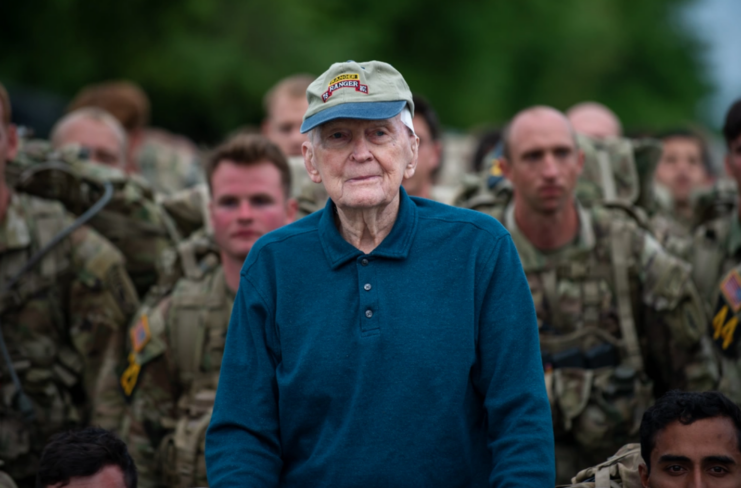
Following the Korean War, Ralph Puckett spent two years as the commander of the Mountain Ranger Division at the US Army Infantry School Ranger Department. During this time, he on to establish the Colombian Army’s version of the Ranger School.
After serving in Germany commanding two teams in the 10th Special Forces Group, Puckett was sent to Vietnam to command the 2nd Battalion, 502nd Infantry Regiment (Airborne), 101st Airborne Division. Similar to his actions in Korea, he exposed himself to enemy bullets during a firefight in South Vietnam, helping his troops defeat the Viet Cong guerrillas they were fighting. For his actions, he was awarded a second Distinguished Service Cross.
In 1971, after 22 years of dedicated service, Puckett retired from the Army. Over two decades later, he became the first person inducted into the US Army Ranger Hall of Fame. Along with his two Distinguished Service Crosses, he’d also received, among many other decorations, the Silver Star with oak leaf cluster, the Bronze Star with Valor and oak leaf cluster, and the Legion of Merit with two oak leaf clusters.
Upgrading the Silver Star to the Medal of Honor
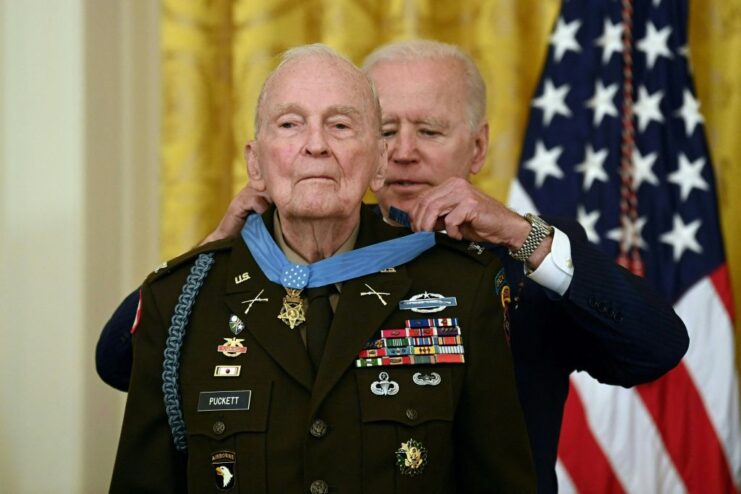
Nearly 71 years after being presented the Distinguished Service Cross for his actions in Korea War, Ralph Puckett saw his award upgraded to the Medal of Honor. This followed two decades of work by retired US Army officer John D. Lock, who’d found out about his story in the 1990s. Despite some failed attempts, he was finally successful, with help from the Army Award Corrections Board.
The ceremony occurred in the White House‘s East Room. Speaking at the event, which was also attended by then-South Korean President Moon Jae-in, US President Joe Biden told the audience, “I’m incredibly proud of give Col. Ralph Puckett’s acts of valor the full recognition they have always deserved,” adding, “This is an honor that was long overdue. More than 70 years overdue.”
While Biden believed he was more than deserving of the honor, Puckett opted to put the spotlight on his men. “I’m certainly honored. The people who earned that medal are the Rangers who did more than I asked,” he told the media after. “I think it’s important for them. They’re the ones who did the job; they did the fighting and suffered.”
Loss of an American hero
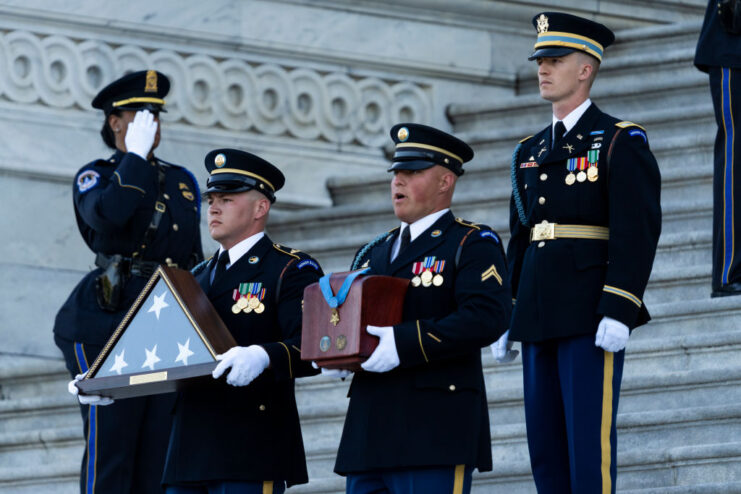
On April 8, 2024, Ralph Puckett passed away in Columbus, Georgia. He was 97 years old, with the cause being complications from Parkinson’s disease. At the time of his death, he was the last living recipient of the Medal of Honor from the Korean War.
Following his death, it was announced Puckett would Lie in Honor at the US Capitol, a rare tribute that’s typically reserved for officials, not private citizens. With it, Puckett became one of just six civilians to be granted the honor.
Speaking about the decision, Senate Majority Leader Charles Schumer (D-NY) said, “The extraordinary valor of Col. Ralph Puckett, Jr. represents the best of the 1.7 million Americans who left home to fight for freedom in the Korean War. He demonstrated tireless sacrifice for our country and his fellow Rangers and is an exceptional model for service members and civilians alike.”
A ceremony was held on April 29, 2024, to recognize the occasion, during which Senate Republican Leader Mitch McConnell added, “Ralph Puckett wore our nation’s highest military decoration. And in the hearts of generations of soldiers to come, the courage and self-sacrifice that earned that honor will be this great man’s eternal legacy.”
More from us: A US Marine Rescued a Kitten That Survived the Fighting at Bunker Hill
Along with his cremated remains Lying in Honor, the flags at the US Capitol were flown at half-staff. Returning to what President Joe Biden said in 2021, “Korea is sometimes called the ‘Forgotten War,’ but those men who were there under Lieutenant Puckett’s command, they will never forget his bravery. They will never forget that he was right by their side for every minute of it.”
